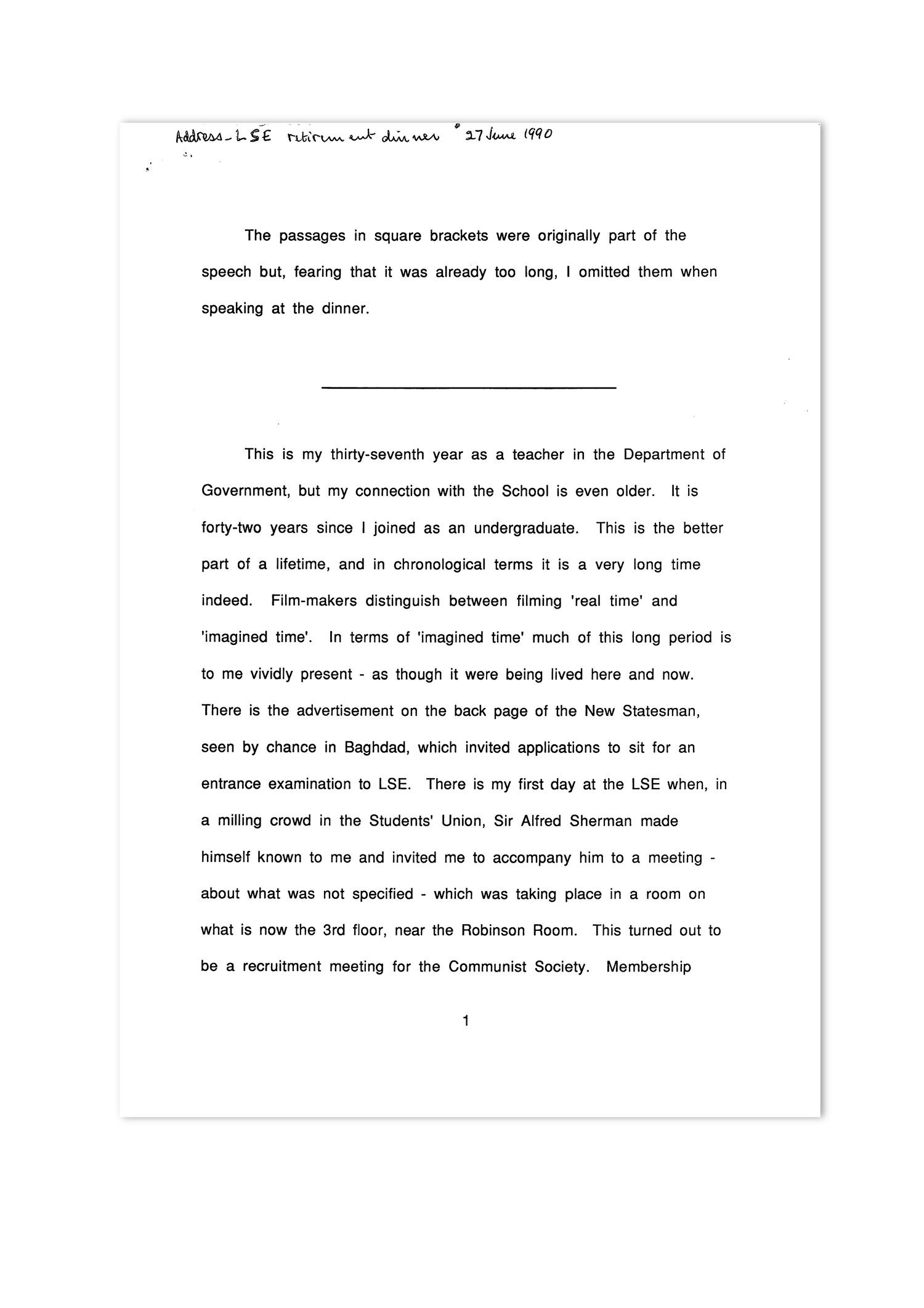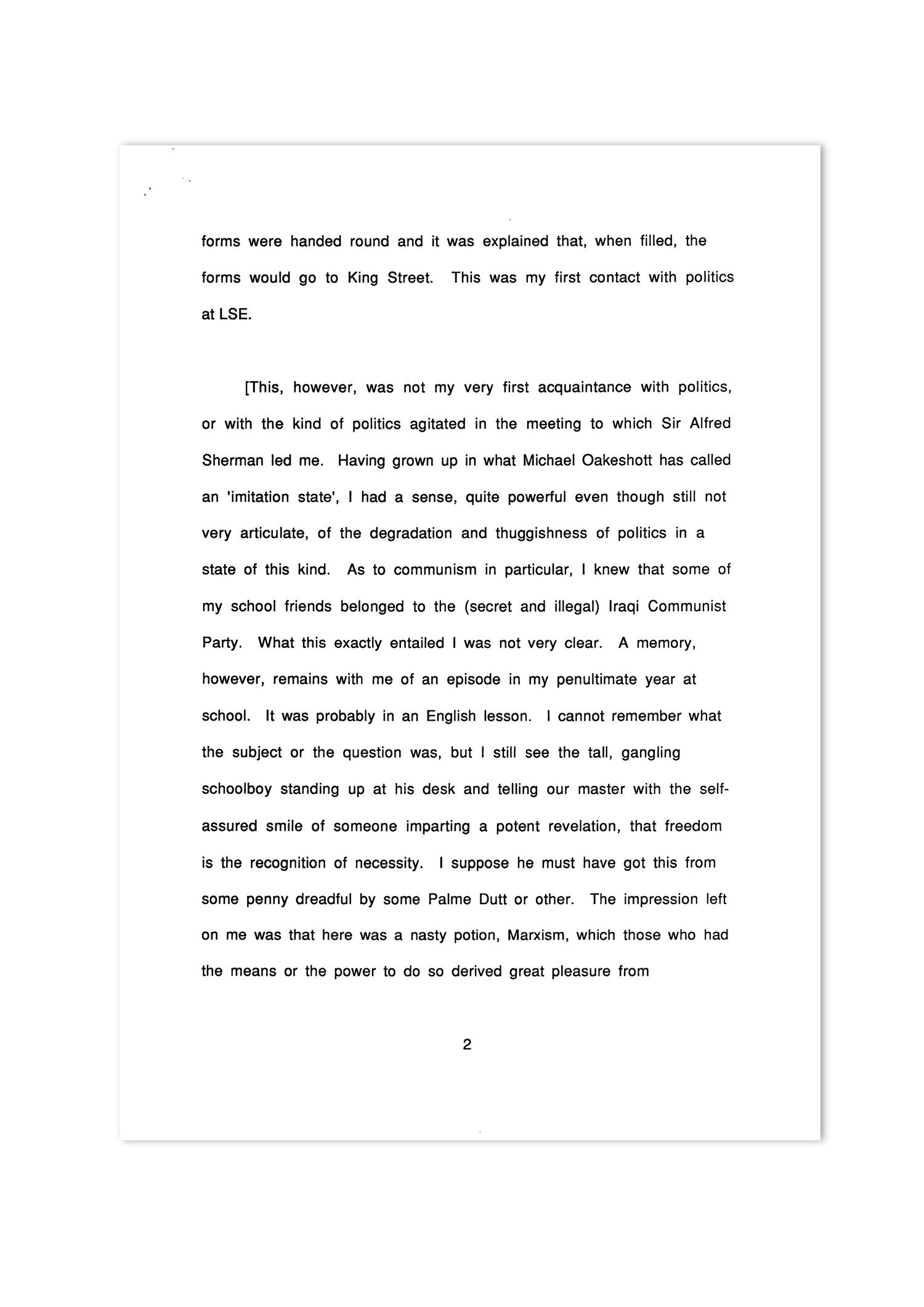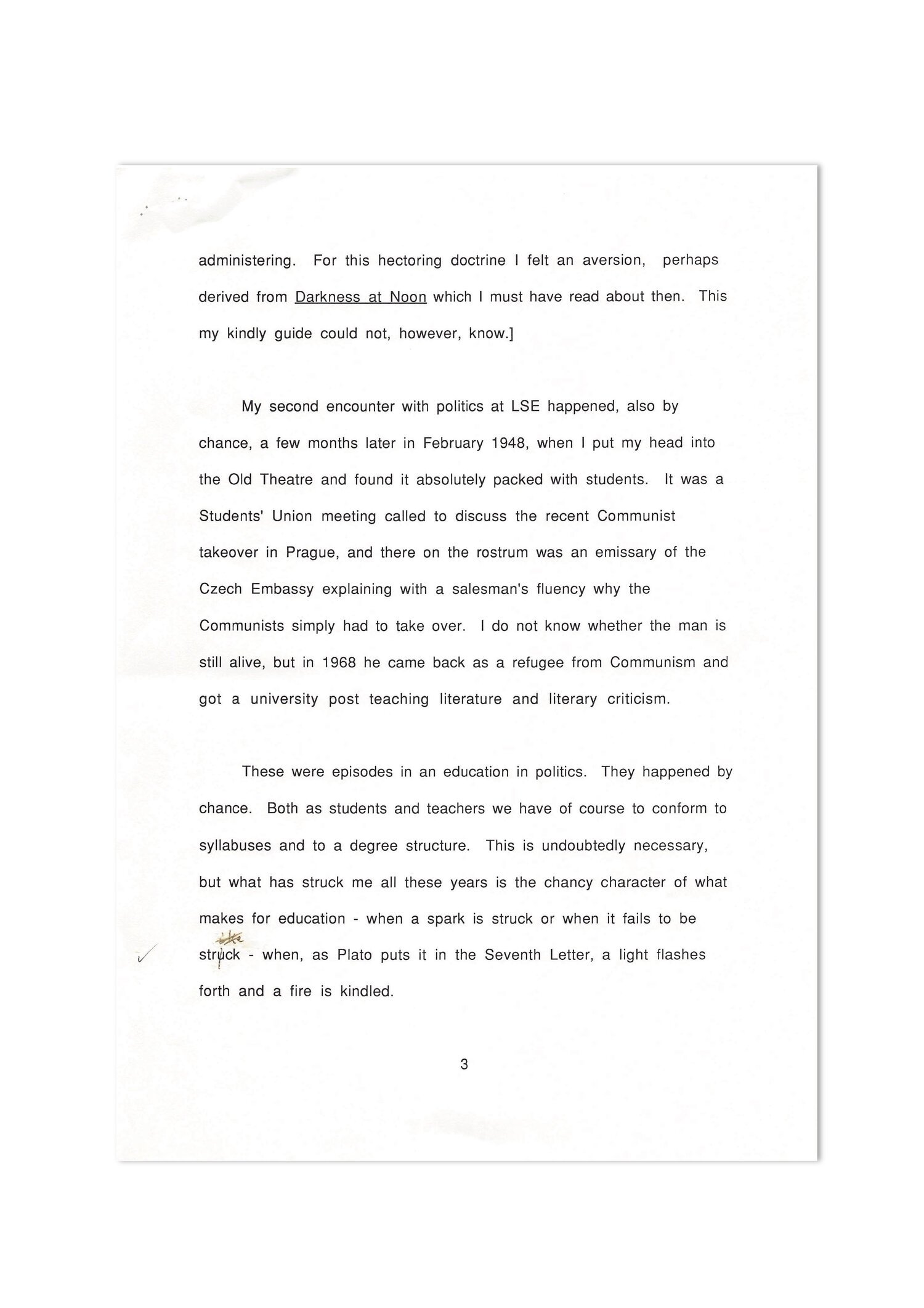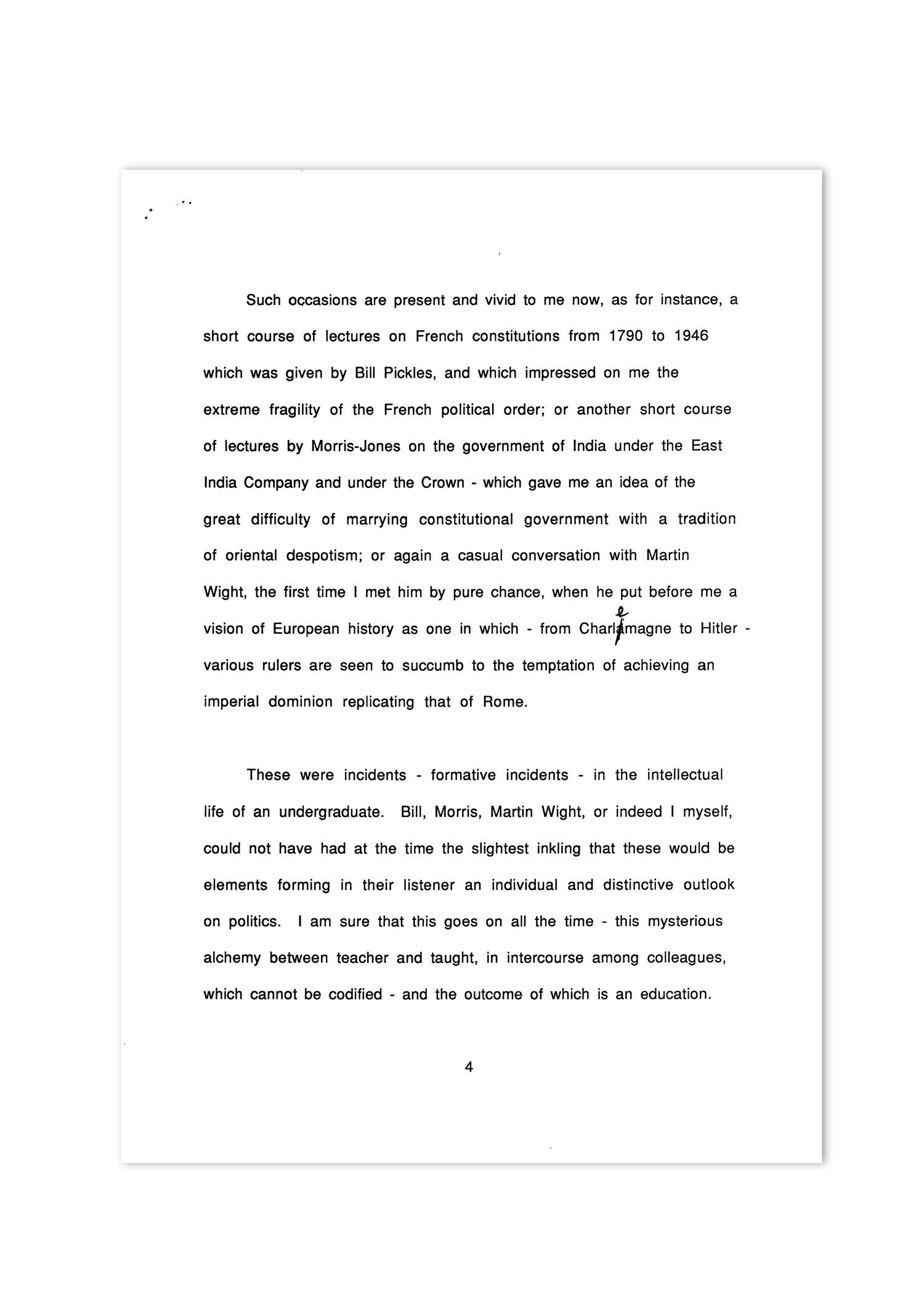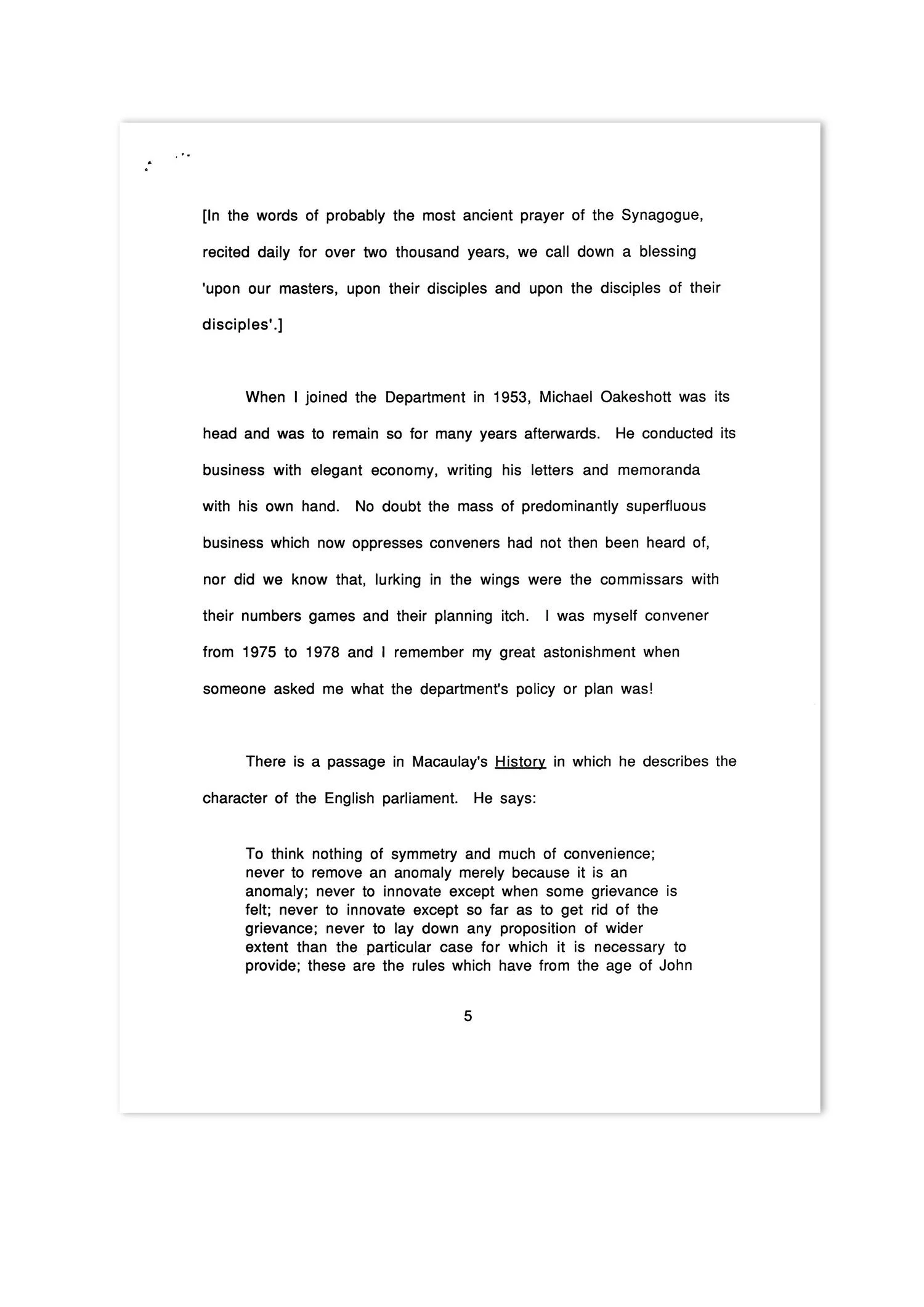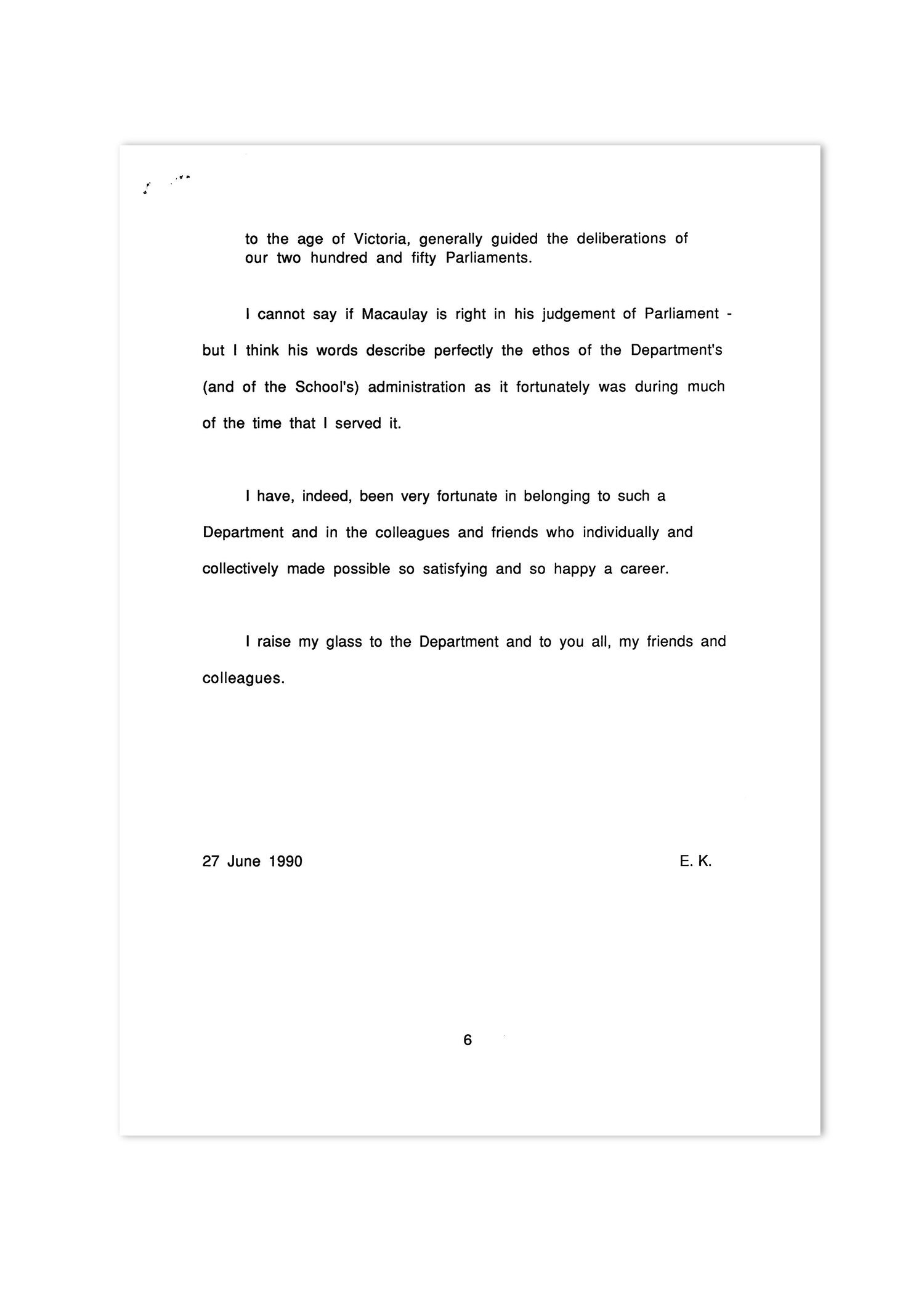Elie Kedourie’s Retirement Address at LSE
Item No. 13.
Elie Kedourie
The British historian Elie Kedourie (1926-1992) was affiliated with London School of Economics for most of his academic life. Born into the Jewish community in Baghdad, he took his undergraduate degree at LSE in the late 1940s and after a brief sojourn to Oxford, he was brought back to LSE by Michael Oakeshott in 1953 where he remained until his retirement in 1990 as Professor of Politics. He founded the journal Middle Eastern Studies there in 1964. Today, Kedourie is perhaps best remembered for his claim that Arab nationalism turned the Middle East into a “wilderness of tigers” and for his hard-nosed criticism of what he saw as the excessive self-doubt and tergiversation of the British Empire. His view that nationalism was far worse than imperialism animated his vehement criticism of Arnold Toynbee and what he called the '“Chatham House version of history”, which he held responsible for the British abdication of responsibility for the state and trajectory of the post-colonial Middle East. As a liberal, Kedourie argued that multi-ethnic empires such as the Ottoman Empire, the Austrian Empire and the British Empire had on the whole been preferable since they allowed a mixture of peoples to co-exist peacefully in contrast to the brutality and homogeneity imposed by the various nationalisms that took their place, often with totalitarian aspirations.
In his farewell speech from 27 June 1990, Kedourie gives a brief reflection on his time at LSE; on his early political education; and on the modern, homogenising university where ‘commissars’ are lucking in the corners ‘with their numbers games and their planning itch’.
In 2020, the Institute of Intellectual History acquired the papers of Elie and Sylvia Kedourie,
which have now been catalogued and digitised as part of the Archive of European Intellectual Life.


